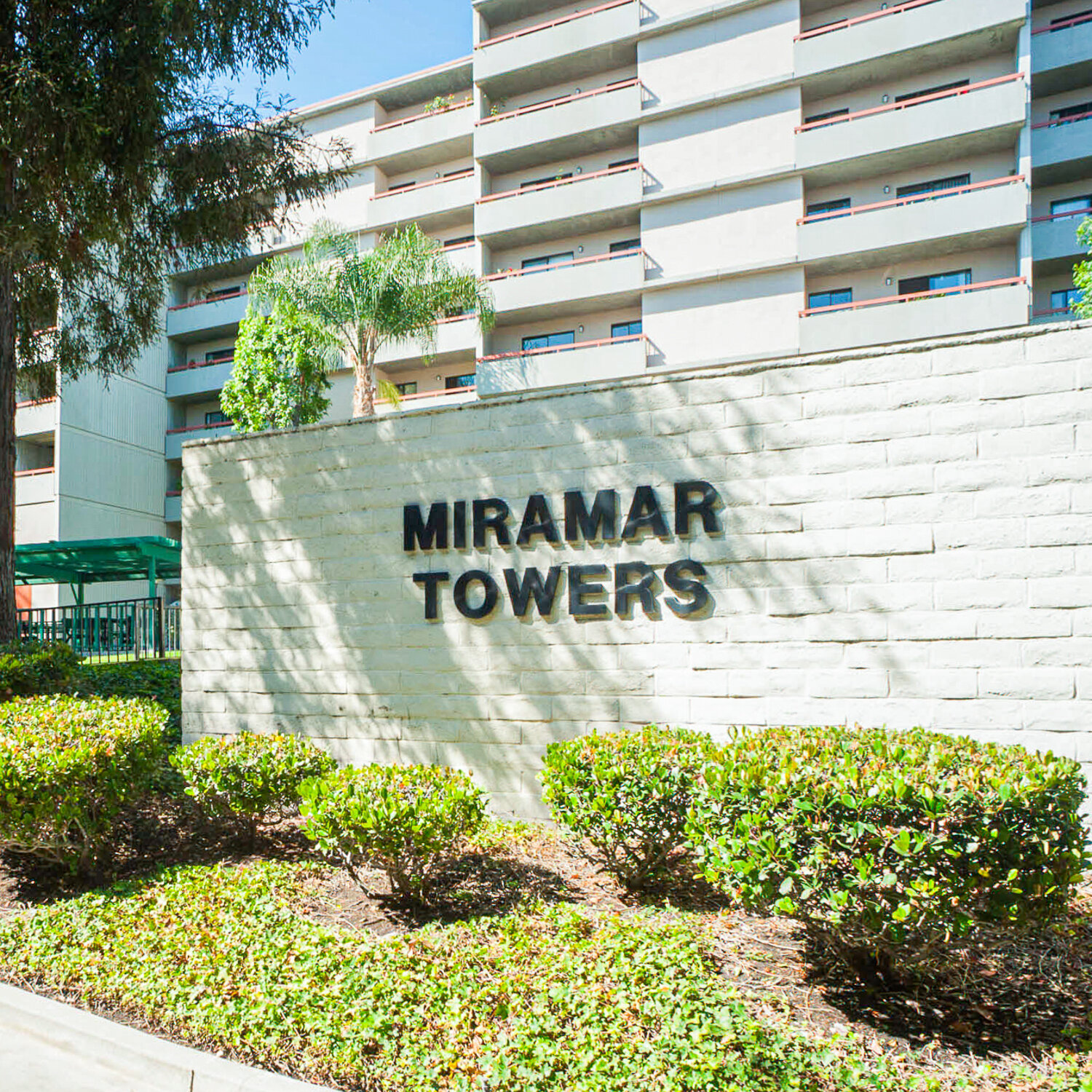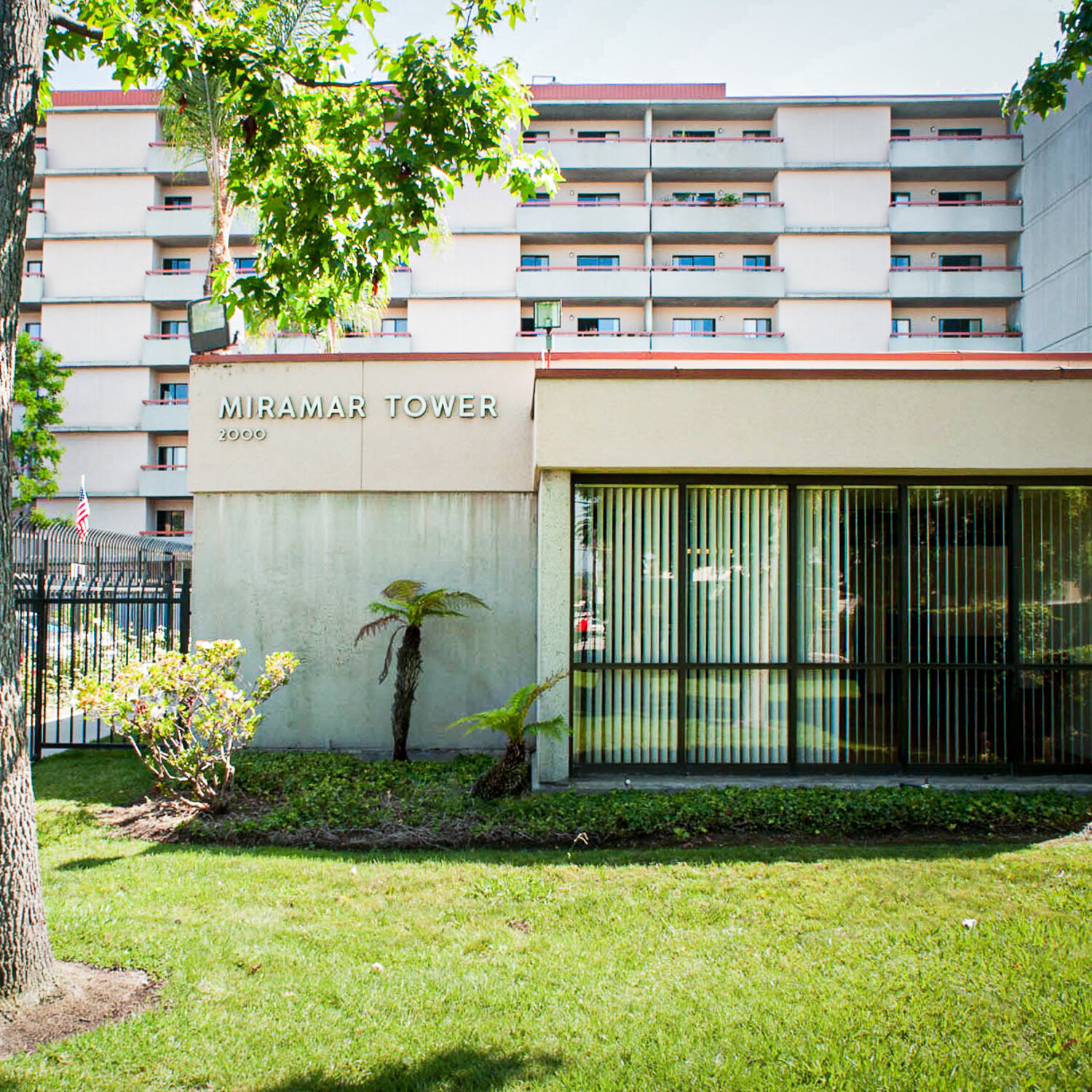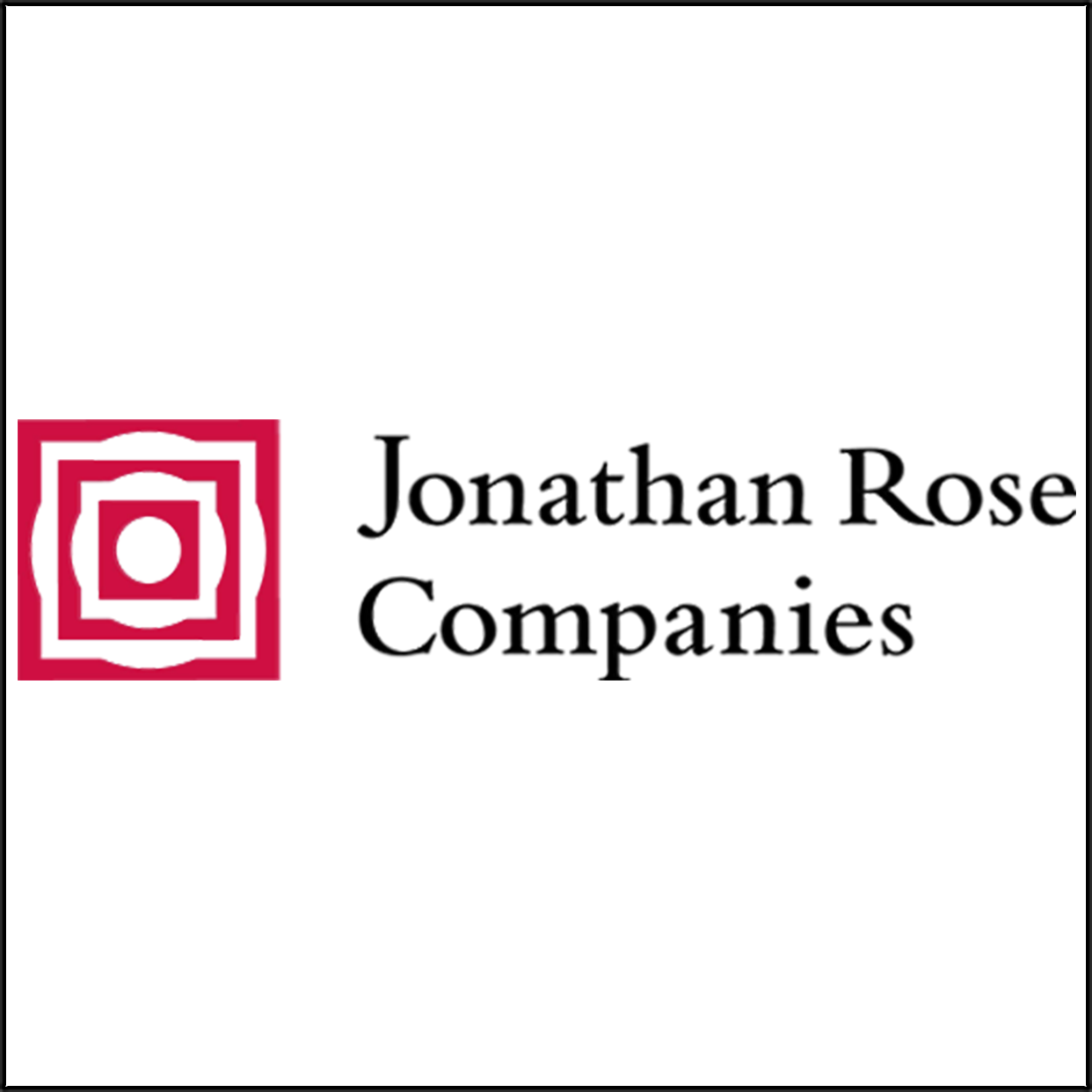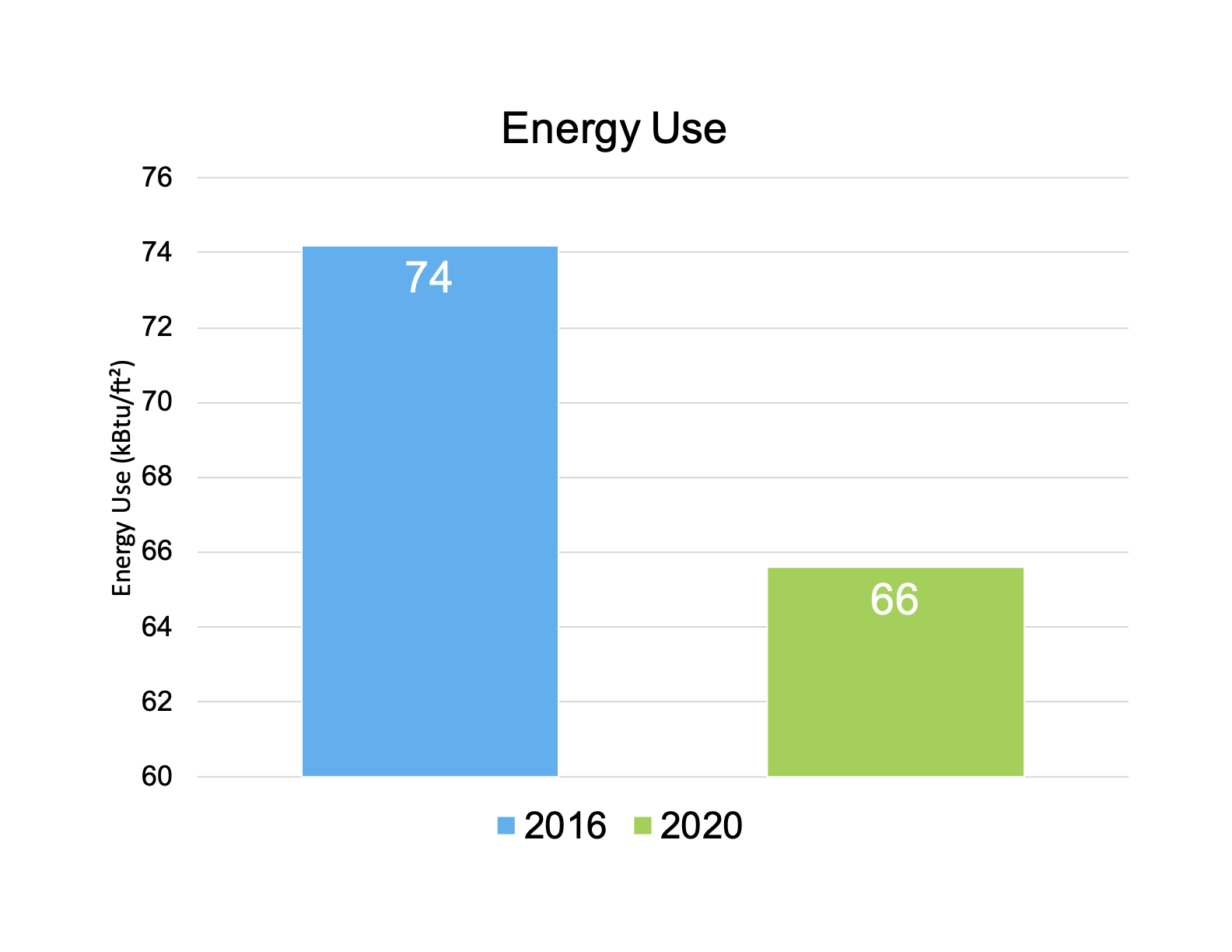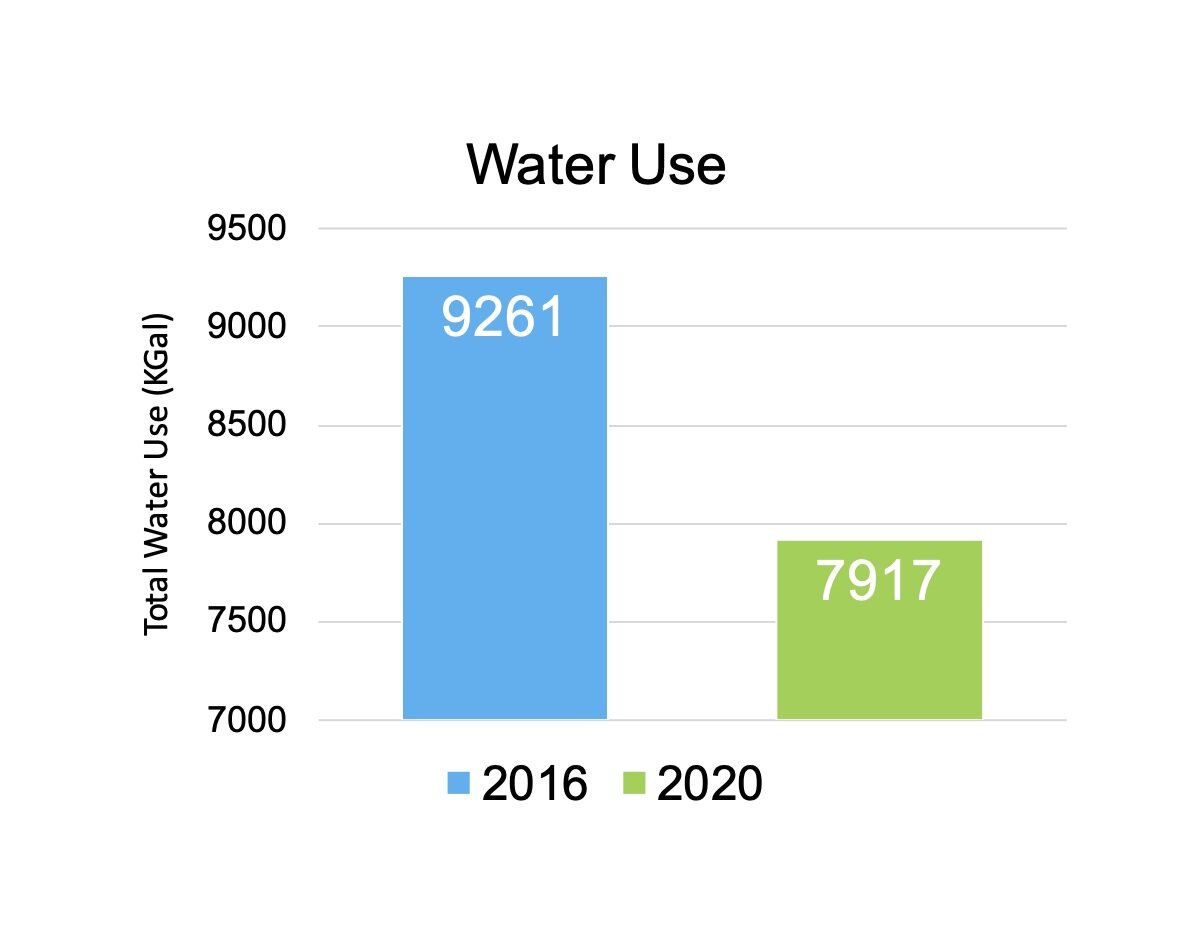Jonathan Rose Companies Achieves Deep Carbon Savings Through Electrification and Energy Efficiency at Miramar Tower
10.2%
Energy Reduction Since Ownership
14.5%
Water Reduction Since Ownership
2021 Innovation Awards: Affordable Multifamily Building Performance Award Winner
“Miramar Tower’s deep energy retrofit project targeted a 53% carbon reduction to dramatically reduce the building’s climate impacts during a major recapitalization of the property. LIWP incentives, alongside those provided by the L.A. Department of Water and Power and SoCalGas, were leveraged to significantly increase the energy and water efficiency scope of the project.”
LAUREN ZULLO
Director of Environmental Impact, Jonathan Rose Companies
CHALLENGE
A mission-driven real estate company focused on providing equitable opportunities for affordable housing communities nationwide, Jonathan Rose Companies (JRC) upholds a longstanding commitment to reduce the negative environmental impacts of each of its properties. The company has implemented a comprehensive impact strategy to invest in the energy efficiency, water conservation and resilience of its buildings to lessen demand for natural resources and consequently mitigate climate change, reduce operating costs and improve the health and safety of residents.
Upon acquiring two federally subsidized mixed-income housing properties in Los Angeles in 2017—and to meet the ambitious goal of achieving 100% green power by 2021 across a national portfolio—JRC set out to pilot electrification of clean technologies such as domestic hot water heating in the more temperate Southern California.
After conducting an ASHRAE Level 2 energy audit at Miramar Tower, the property was identified as an ideal pilot site to implement a comprehensive green retrofit to achieve deep carbon savings through electrification and energy efficiency. However, with limited funding and experience navigating the incentive and tax credit pathways in California, the team faced potential delays in accomplishing the deep retrofit.
STRATEGY
The Miramar Tower project team began work with sustainability consultants in 2017 to formulate a plan that not only prioritized decarbonization and water conservation, but was designed to meet sustainability requirements for tax credit allocation programs and integrate incentives available from the L.A. Department of Water and Power, SoCalGas and the Low-Income Weatherization Program (LIWP), which provides technical assistance and financial support for the installation of energy efficiency measures in existing low-income multifamily properties. At the same time, the team pursued a 4% low-income housing tax credit (LIHTC) and bond re-syndication, delaying the energy project for two years.
The project commenced in 2019, with a focus on the electrification of a central gas-fired hot water system with a Colmac heat pump water heater, envelope improvements—including air sealing and dual-pane windows—and the installation of a 72-kW rooftop solar PV system to ensure electrification without overstraining the grid. Measures taken to reduce the property’s water usage included installation of high efficiency toilets, low-flow aerators and showerheads, recirculation controls and in-unit check valves to improve hot water distribution, and replacement of in-unit space heating boilers with high-efficiency condensing boilers.
At the onset of COVID-19, project construction was halted temporarily. Once allowed to proceed, the team revised the construction schedule, reduced the number of units that the construction team would enter at a time and safely relocated residents who were in-place during construction to safe “hospitality” spaces in the community room and other amenity spaces where they implemented social distancing and required mask-wearing. The team also required open communication with contractors to stay informed of any potential COVID cases.
IMPACT
Construction on Miramar Tower is estimated to be completed in early 2021, with carbon emissions expected to decrease by 53% and water use by 16% below a 2016 baseline. As of November 2020, the retrofit has seen a 7% decrease in carbon emissions and a 14% decrease in water use. Rebates and incentives received through LIWP and LADWP significantly increased the energy and water efficiency scope of the project and boosted the projected payback period to approximately seven years from project completion.
JRC recently received entitlements to build a new infill development project on a portion of Miramar Tower’s lot, which will bring an additional 135 units of affordable housing to the neighborhood. The project is designed to be all electric, save 15% more energy than required by Title 24 and target LEED Gold certification.
This California project led JRC to broaden its implementation of electrification, including to projects planned in New York. In 2020 alone, JRC launched a company-wide green cleaning policy and program, closed a $525 million impact fund to preserve affordable green housing, launched its “Rose Solar” initiative to develop solar photovoltaic systems across its national portfolio and purchased green power for 100% of its managed properties.

